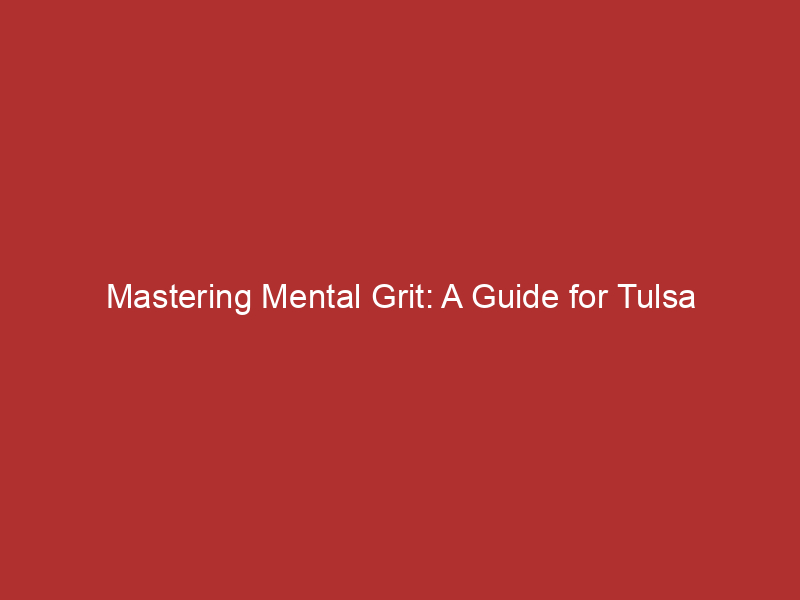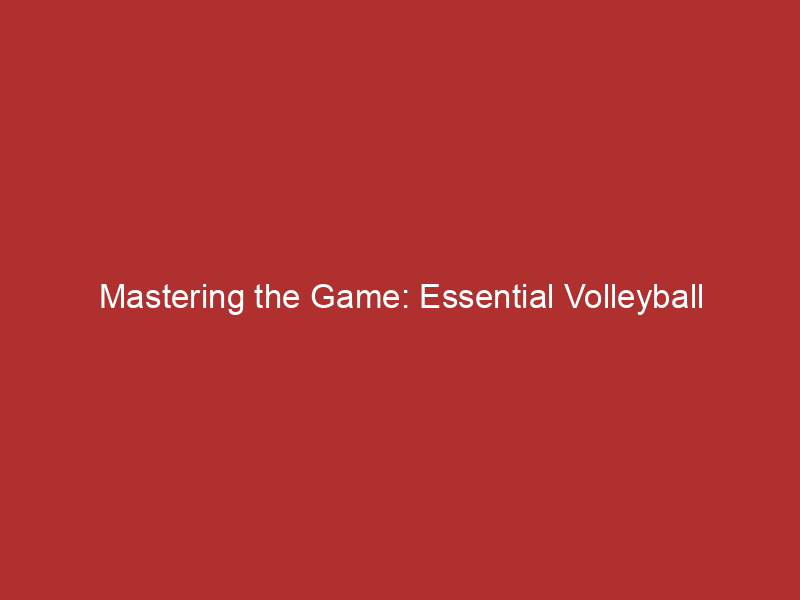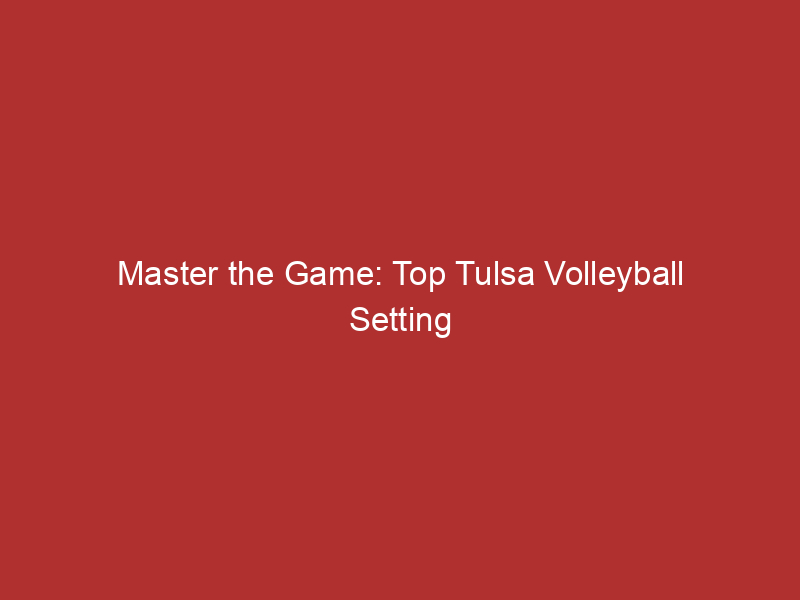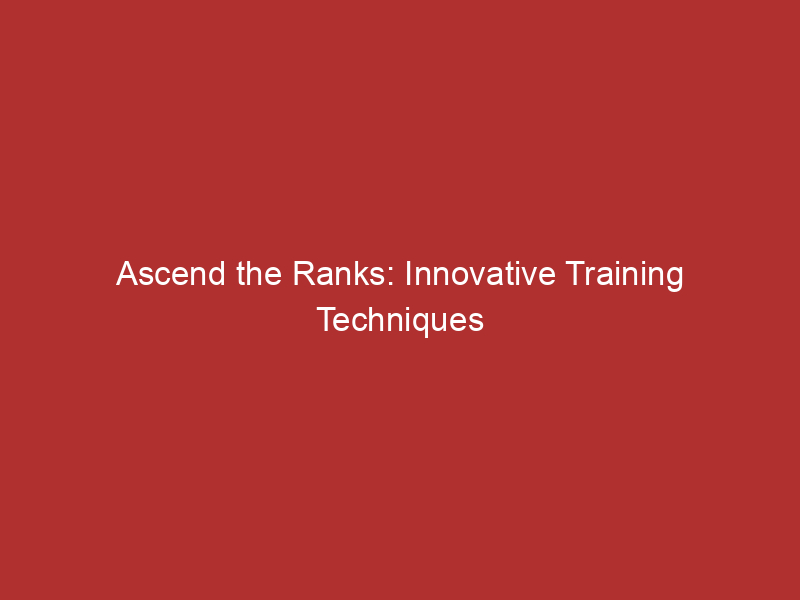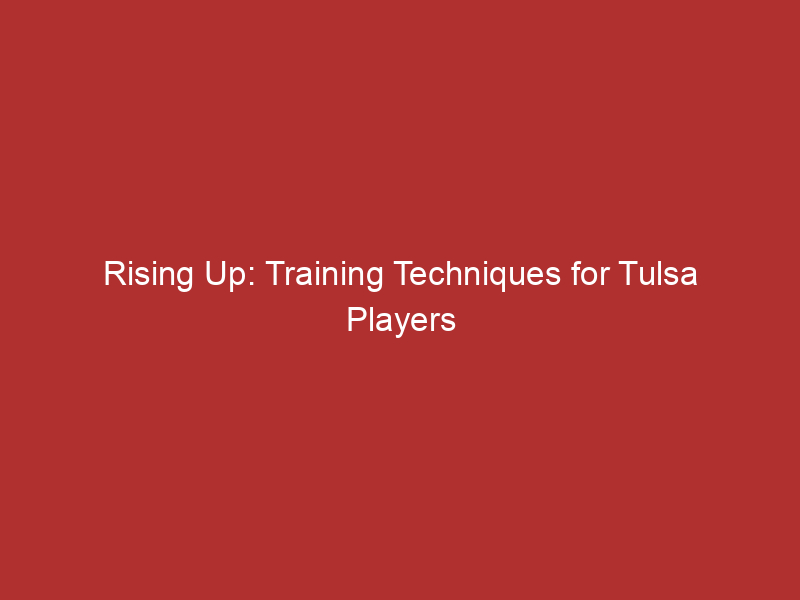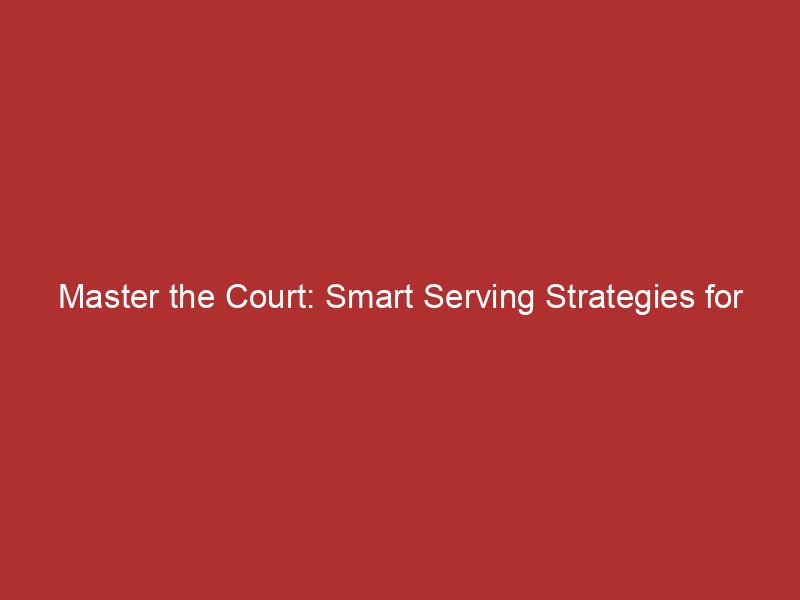Introduction to Tulsa Volleyball Mental Toughness
When we talk about volleyball, especially in Tulsa, we often focus on physical skills like serving, passing, and hitting. But there’s another aspect that’s just as important, if not more so: mental toughness. This blog post will delve into the significance of mental toughness in volleyball and its impact on performance.
-
- Understanding the importance of mental toughness in volleyball
Mental toughness is a critical component of any sport, and volleyball is no exception. It’s the ability to stay focused, confident, and calm under pressure. It’s about being resilient, bouncing back from mistakes, and not letting them affect your game. It’s about maintaining a positive attitude, even when things aren’t going your way.
Imagine you’re in a tight match, and you make a mistake that costs your team a point. If you’re mentally tough, you’ll shake it off, learn from it, and move on to the next play. If you’re not, that mistake could linger in your mind, affecting your performance for the rest of the match.
-
- How mental toughness impacts performance in Tulsa Volleyball
In Tulsa Volleyball, mental toughness can be the difference between winning and losing. It’s what allows players to perform at their best, even in high-pressure situations. It’s what helps teams come from behind to win, even when the odds are stacked against them.
For example, during the 2019 season, the Tulsa Volleyball team was down two sets to none in a crucial match. But instead of giving up, they stayed mentally tough. They kept their focus, stayed positive, and fought back to win the match in five sets. That’s the power of mental toughness.
In the following sections, we’ll explore more about the ‘Ace Attitude’ in volleyball, delve deeper into mental strength, and share some techniques to enhance mental resilience in Tulsa Volleyball. Stay tuned!
The Ace Attitude in Volleyball
In the world of volleyball, there’s a special mindset that sets apart the good players from the great ones. This is known as the “Ace Attitude”. Let’s dive deeper into what this attitude entails and see it in action.
-
- Defining the Ace Attitude
The Ace Attitude is all about confidence, resilience, and a never-give-up spirit. It’s about believing in your abilities and pushing through, no matter how tough the game gets. It’s about being a team player and always striving for improvement. It’s not just about winning; it’s about giving your all in every game, every practice, every moment.
-
- Examples of the Ace Attitude in action
Let’s look at some examples of the Ace Attitude in action. Consider a player who, despite being down in the score, continues to play with full energy and determination. They don’t let the score affect their performance. Instead, they focus on each point as a new opportunity. This is a clear example of the Ace Attitude.
Another example is a player who, after making a mistake, doesn’t dwell on it. Instead, they learn from it and move on, ready to make the next play better. They understand that mistakes are part of the game, and they use them as stepping stones to improve. This, too, is the Ace Attitude in action.
These are just a few examples, but the Ace Attitude can be seen in many different situations on the volleyball court. It’s about having a positive mindset, being a team player, and always striving for improvement. So, whether you’re a player, a coach, or a fan, remember the importance of the Ace Attitude in volleyball.
Ace Attitude isn’t just about skills on the court. It’s also about mental toughness, resilience, and a positive mindset. So, keep practicing, keep improving, and keep your Ace Attitude strong!
Mental Strength in Volleyball
Just like physical strength, mental strength plays a pivotal role in volleyball. It’s about the ability to stay focused, confident, and calm under pressure. It’s about being able to bounce back from mistakes and keep a positive mindset. Let’s delve into how you can build this mental toughness.
Building Mental Toughness
Building mental toughness is a process that involves several steps. Here are three key steps to help you get started:
-
- Step 1: Self-Awareness
Self-awareness is the first step towards building mental toughness. It involves understanding your strengths and weaknesses. It’s about recognizing your emotions and how they affect your performance. For instance, if you tend to get nervous before a big game, acknowledging this can help you find ways to calm your nerves and perform better.
-
- Step 2: Mental Conditioning
Mental conditioning is about training your mind to handle pressure and overcome challenges. This can be achieved through techniques like visualization, where you imagine yourself successfully performing a task. For example, a volleyball player might visualize serving an ace or making a perfect dig. Over time, this can help boost your confidence and improve your performance.
-
- Step 3: Consistent Practice
Consistent practice is key to building mental toughness. It’s not just about practicing your physical skills, but also your mental ones. This means regularly working on your self-awareness and mental conditioning. Remember, mental toughness is like a muscle – the more you use it, the stronger it gets.
Building mental toughness in volleyball is not an overnight process. It requires dedication, patience, and consistent effort. But with time and practice, you can develop the mental strength needed to excel in this sport.
Tulsa Volleyball Training: A Focus on Mental Toughness
When it comes to volleyball, physical prowess is not the only factor that determines a player’s success. Mental toughness plays a crucial role as well. In this section, we will delve into the importance of incorporating mental toughness in training and provide a case study on how this has been successfully implemented in Tulsa Volleyball.
-
- Importance of Incorporating Mental Toughness in Training
Mental toughness is the ability to perform at the upper range of your talent and skill, regardless of competitive circumstances. In volleyball, this means maintaining concentration, composure, and confidence in the face of adversity, such as a tough opponent or a high-pressure situation. It’s about resilience, determination, and a positive mindset.
Training for mental toughness in volleyball involves strategies like setting challenging but achievable goals, maintaining a positive attitude, managing stress, and developing a strong work ethic. These skills not only help players excel in the game but also equip them with valuable life skills.
-
- Case Study: Successful Implementation of Mental Toughness Training in Tulsa Volleyball
One shining example of successful mental toughness training is the Tulsa Volleyball team. The coaches at Tulsa have made mental toughness a key part of their training program. They have incorporated various techniques such as visualization, mindfulness, and positive self-talk into their routine.
As a result, the Tulsa team has shown remarkable improvement in their performance. They have been able to maintain their composure in high-pressure situations, make smarter decisions on the court, and bounce back from setbacks more quickly. This case study clearly demonstrates the power of mental toughness in volleyball and the importance of incorporating it into training.
Mental toughness is a vital component of volleyball training. It helps players perform at their best under pressure, overcome challenges, and improve their overall performance. As the case study of Tulsa Volleyball shows, a focus on mental toughness in training can lead to significant improvements on the court.
Volleyball Performance Psychology
One of the key aspects of becoming a successful volleyball player is mastering the art of performance psychology. This involves training your mind to be as strong and agile as your body, allowing you to react quickly and decisively during a game. Let’s delve into the world of mental conditioning for volleyball and explore some techniques that can help improve your game.
Mental Conditioning for Volleyball
Mental conditioning is just as important as physical training in volleyball. It involves training your mind to stay focused, calm, and positive, even under the most challenging circumstances. Here are three effective mental conditioning techniques that can help you improve your performance on the volleyball court:
-
- Technique 1: Visualization
Visualization is a powerful tool that can help you improve your volleyball skills. It involves picturing yourself successfully executing a move or winning a game. This technique can help you build confidence and reduce anxiety. For example, before serving, visualize the ball crossing the net and landing in the exact spot you want it to.
-
- Technique 2: Positive Self-Talk
Positive self-talk is another effective mental conditioning technique. It involves replacing negative thoughts with positive ones. For instance, instead of thinking, “I can’t make this serve,” tell yourself, “I’ve practiced this serve and I can do it.” Positive self-talk can help boost your confidence, reduce stress, and improve your overall performance.
-
- Technique 3: Goal Setting
Setting clear and achievable goals is a crucial part of mental conditioning. Goals give you something to strive for and can help keep you motivated. For example, your goal could be to improve your serving accuracy or to increase your vertical jump. Remember, it’s important to set both short-term and long-term goals, and to celebrate your achievements along the way.
Mntal conditioning for volleyball involves a combination of visualization, positive self-talk, and goal setting. By incorporating these techniques into your training routine, you can enhance your mental toughness and improve your performance on the court.
Tulsa Volleyball Techniques: Enhancing Mental Resilience
Just as physical strength is crucial in volleyball, so is mental resilience. It’s the ability to bounce back from setbacks, maintain focus, and embrace pressure. Let’s explore three techniques that can help enhance mental resilience in the game of volleyball.
- Technique 1: Embracing Pressure
Pressure is a constant companion in any competitive sport, and volleyball is no exception. Embracing pressure rather than fearing it is a key technique in building mental resilience. When you embrace pressure, you see it as a challenge to overcome, not a barrier to success.
Consider the 2018 Tulsa Volleyball Championship. The pressure was high, but instead of crumbling, the players used it as a motivator. They saw each point as an opportunity to prove themselves, and they did. They won the championship, showing that pressure, when embraced, can lead to great success.
- Technique 2: Overcoming Setbacks
Setbacks are inevitable in volleyball. A missed serve, a lost point, or even a lost match can be disheartening. But overcoming these setbacks is a crucial part of building mental resilience. It’s about learning from mistakes and using them as stepping stones to improvement.
Take the example of a Tulsa Volleyball team player who missed a crucial serve in a match. Instead of dwelling on the mistake, they analyzed what went wrong, practiced more, and improved their serve. The next match, they served perfectly, turning their setback into a success.
- Technique 3: Maintaining Focus
Maintaining focus, especially in high-pressure situations, is a vital technique for enhancing mental resilience. It’s about staying in the moment, concentrating on the task at hand, and not getting distracted by external factors.
For instance, during a tense tie-breaker in a Tulsa Volleyball match, one player managed to maintain their focus despite the cheering crowd. They concentrated on their serve, blocked out the noise, and won the point for their team. This shows how maintaining focus can lead to success on the volleyball court.
Embracing pressure, overcoming setbacks, and maintaining focus are three key techniques for enhancing mental resilience in volleyball. By mastering these techniques, you can not only improve your game but also develop a stronger, more resilient mindset.
Improving Mental Toughness in Volleyball: Key Takeaways
As we conclude our exploration of mental toughness in volleyball, let’s summarize the main points we’ve learned. These key takeaways will help you understand the importance of mental toughness and how it can be developed and incorporated into training to enhance performance.
-
- Takeaway 1: Mental toughness is as important as physical skill
Just as you train your body to serve, spike, and dig, you must also train your mind to be resilient and focused. Mental toughness is a critical component of volleyball. It enables players to handle pressure, overcome challenges, and maintain a high level of performance even under stress. Remember, a volleyball match isn’t just a test of physical prowess, but also a test of mental strength.
-
- Takeaway 2: Mental toughness can be developed and improved
Mental toughness isn’t something you’re born with—it’s a skill that can be developed and improved over time. Just like physical skills, mental toughness requires consistent practice and dedication. Techniques such as visualization, goal setting, and positive self-talk can help build mental toughness.
-
- Takeaway 3: Incorporating mental toughness in training enhances performance
By incorporating mental toughness into your training regimen, you can significantly enhance your performance on the court. Training your mind to stay focused, calm, and confident can help you make better decisions during the game, recover from mistakes more quickly, and maintain a high level of performance throughout the match.
By understanding its importance, developing it, and incorporating it into your training, you can become a more resilient and successful volleyball player.

